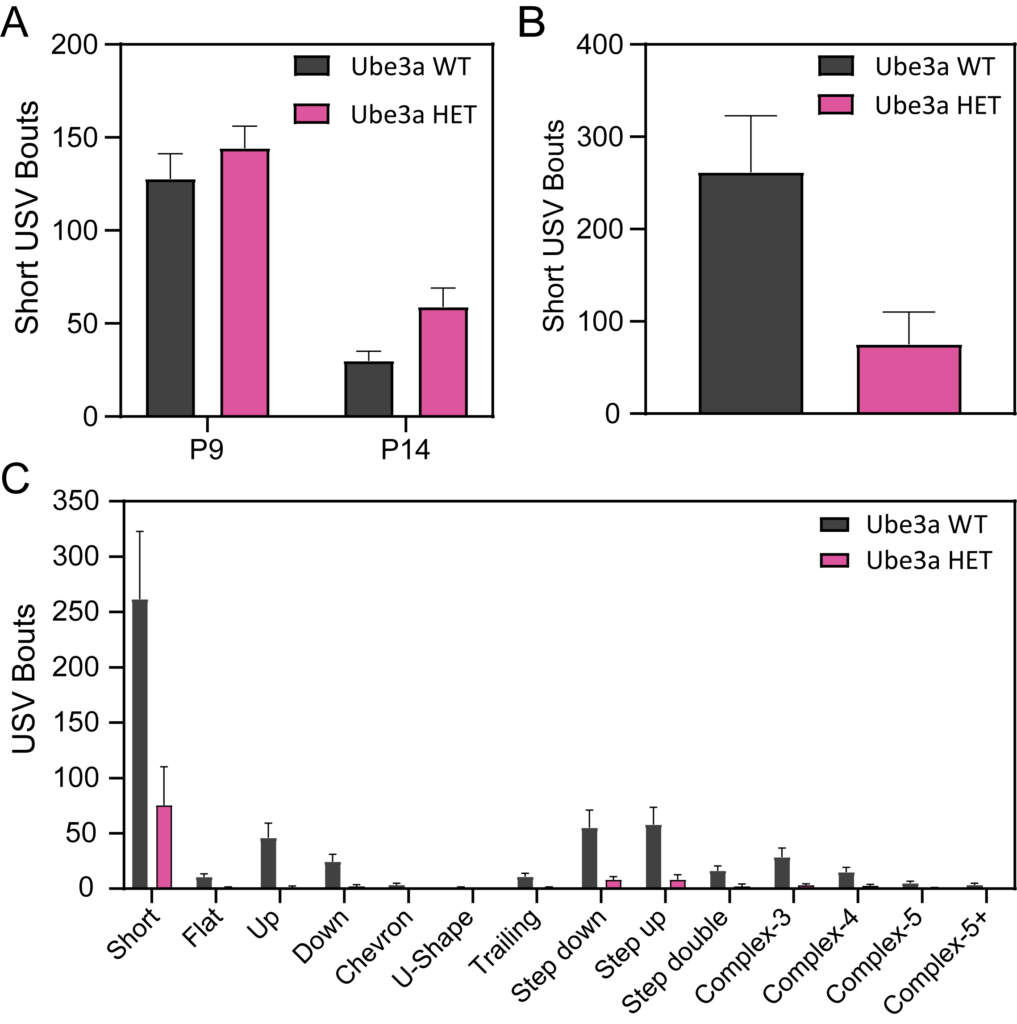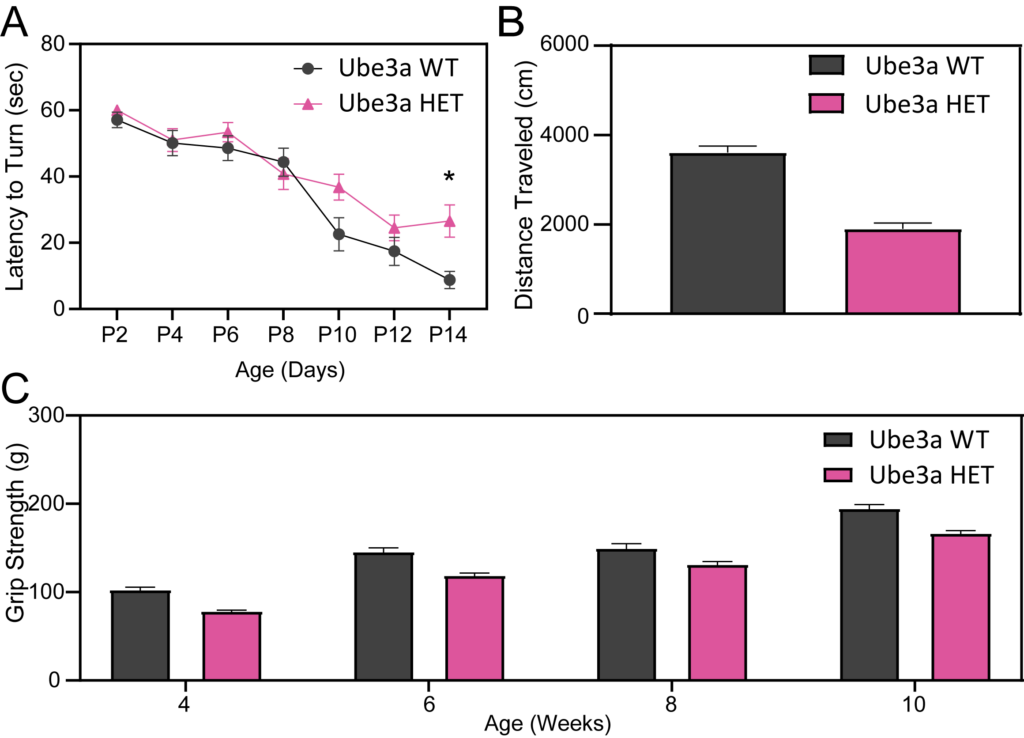Angelman Syndrome (AS) is a rare genetic neurodevelopmental disorder characterized, in part, by developmental delays, movement impairments, and difficulties with communication and language, the effects of which impact children and adults living with AS along with their caregivers. AS is most frequently caused by deletion or mutation of the Ube3a gene on the maternal allele. PsychoGenics has characterized the Ube3a mouse model of AS in both neonatal and adult mice.
Ultrasonic Vocalizations

(A) Number of short-duration USV calls at Postnatal day 9 (P9) and 14 (P14). At P14, but not P9, the number of calls was greater in male Ube3a HET mice compared to WT mice. (B) Number of short-duration calls was decreased in 13-week-old Ube3a HET mice compared to age-matched WT mice. (C) Classification of USV calls in 13-week-old male Ube3A WT and HET mice showed that Ube3A HET mice made fewer total USV calls compared to WT. Furthermore, the composition of these calls differed between the genotypes. The majority of the calls in the adult HET animals were short in duration, in contrast to WT animals who exhibited a more diverse and complex vocalization repertoire.
Motor and Muscle Assessment

(A) Geotaxis performance in Ube3a WT and HET mice at P2 through P14. The latency to turn was longer in HET mice compared to WT at P14. (B) Performance in the open field at 5 weeks of age. The distance traveled was reduced in the Ube3a HET mice compared to WT. (C) Grip strength performance in Ube3a WT and HET mice at 4 through 10 weeks of age. Grip strength was lower in the male Ube3a HET mice compared to their WT counterparts at all ages tested.